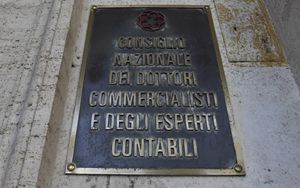(Finance) – Il National Council and Foundation of Accountants they published the new international observatory on business crises. In the file, which contains the tenth and eleventh issues of the publicationsome legislative and jurisprudential innovations relating to insolvency in the international and transnational context at the end of 2023 and the beginning of 2024 are commented on. In the sections and comments, recent legislative changes are noted, as well as relevant rulings published in recent months on insolvency and restructuring in Europe and in the rest of the world and there are interesting news for professionals in the sector.
In addition to regulatory and jurisprudential news which in some cases develop, in continuity with the past, themes addressed in previous publications, the section relating to in-depth analysis is particularly rich and interesting in which the reflections unfold, along different levels of investigation, on problems and themes of particular importance for the functions carried out by crisis and insolvency professionals, also in consideration of the dynamics that traditionally involve cross-border procedures.
From this perspective, by way of example, group procedures are the subject of reflection in two essays.
The first essay, by Luciano Panzani and Robert Van Galen, after having reviewed the regulatory evolution within the EU and the main characteristics of the Uncitral Model Law on the insolvency of corporate groups, formulates interesting proposals to promote the application of a coordination procedure for insolvent groups. The second essay, by Lorenzo Benedettimaking a comparison with the similar institutions regulated in the regulations of other countries of the Union in relation to the third party release, the prohibition of ipso facto clauses, the stay in the context of the group, focuses on the gaps found in the current Crisis Code, calibrated more on the monad enterprise than on the dynamics of the group of enterprises.
In selecting the jurisdictions to investigate and the regulations to examine also following the implementation of the Insolvency Directivethe observatory gives particular preference to France, to which the essay by Jean-Luc Vallens and the article by Maurizia Venezia and Roberta Annaratone are dedicated.
In the first contribution we analyze the special regulation of the financial difficulties of syndicat de coproprieté – legal entities governed by private law established in the form of a civil company – to which the provisions contained in the Commercial Code do not apply; the second writing offers some reflections on the regulation of the law of the French crisis following the implementation of the Insolvency Directive, with particular attention to the dynamics of governance and the relationships between shareholders and directors in the so-called preventive restructuring frameworks.
The Austrian legal system was also the subject of investigation with a contribution by Karl-Heinz Goetze on the development of organizations responsible for protecting creditors with rules that are unique throughout Europe. The growing number of insolvency proceedings and the consequent need to protect the interests of creditors has pushed the Austrian legislator to create institutions that fulfill this function. The section closes with Antonella Tanico’s contribution on the legal framework and treatment of cryptocurrencies in Hong Kong.
